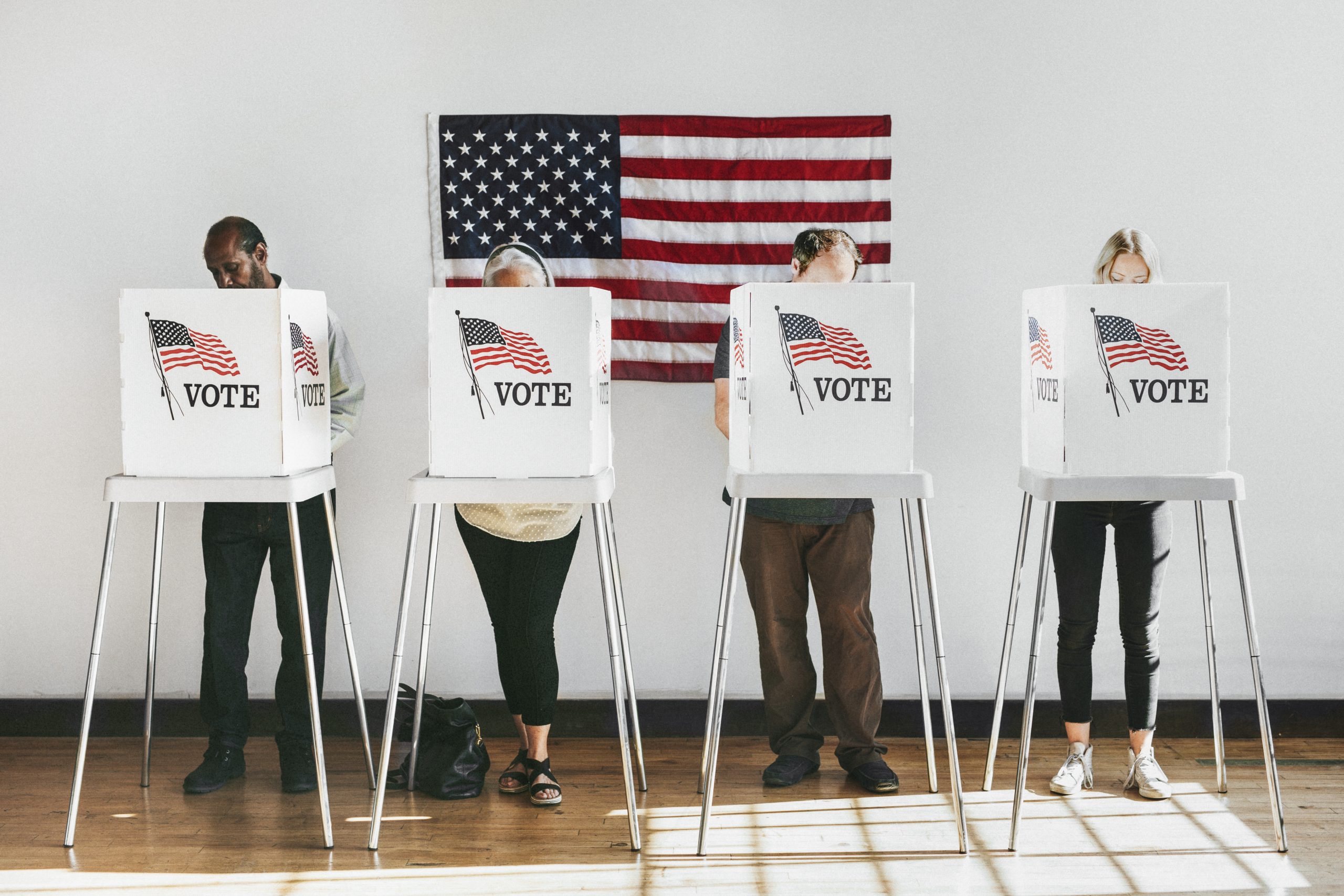Are you curious about who is eligible to vote in US elections? This article will provide you with all the information you need. Voting is a fundamental right and a crucial aspect of democracy. By understanding the eligibility requirements, you can ensure that your voice is heard in the democratic process. In this article, you’ll learn about the importance of meeting eligibility criteria, the necessary documents you’ll need to vote, and the voter registration deadlines. We’ll also discuss voting restrictions, such as felony convictions and restrictions for individuals serving time for certain crimes. Age requirements and residency criteria will be covered too, giving you a comprehensive understanding of who can participate in US elections. If you have any questions or need assistance, we’ll provide you with resources and contacts to help you navigate the voting process successfully. Stay informed and exercise your right to vote.
U.S. Citizenship Requirement
To be eligible to vote in US elections, you must meet the U.S. citizenship requirement. This means that you must be a citizen of the United States in order to exercise your right to vote. The U.S. citizenship requirement ensures that those who participate in the democratic process have a vested interest in the well-being of the country.
In order to prove your U.S. citizenship, you may be required to provide residency documentation, such as a driver’s license or utility bills, to establish that you are a resident of the state where you are registering to vote. Additionally, if you obtained your citizenship through the naturalization process, you may need to provide proof of your naturalization certificate.
It’s important to note that dual citizenship does not automatically grant you the right to vote in US elections. You must be a U.S. citizen to be eligible, regardless of any other citizenship you may hold.
If you have lost your voting rights due to a criminal conviction, in some states, you may be able to have your voting rights restored after completing your sentence or going through a specific process. It is important to familiarize yourself with the voting rights restoration laws in your state to determine if you are eligible to have your voting rights reinstated.
Residency Requirement
Meeting the residency requirement is crucial for being eligible to vote in US elections. In order to establish residency, individuals must provide proof of residency, such as a driver’s license, utility bill, or lease agreement. However, there are exceptions to residency requirements in certain circumstances, such as military personnel or individuals living abroad. It is important to note that residency requirements vary from state to state. Some states require a certain period of residency, while others may only require residency on Election Day. Homeless individuals may face challenges in meeting residency requirements, but they still have the right to vote. They can use alternative forms of identification and provide information about their temporary address or shelter. Residency requirements also impact college students’ voting eligibility. Students may choose to register to vote in their home state or the state where they attend school. It is important for students to understand the residency requirements of both states and determine which option best suits their voting needs.
Age Requirement
You must be of legal voting age to participate in US elections. The age requirement to vote in the United States is 18 years old or older on Election Day. However, some states allow individuals to pre-register before turning 18 if they will be eligible to vote by Election Day. It is important to register to vote by the state’s deadline, with the exception of North Dakota, which does not require voter registration.
The age requirement for voting has been a topic of debate throughout history. There have been historical changes in the voting age, such as the passage of the 26th Amendment in 1971, which lowered the voting age from 21 to 18. This change was driven, in part, by the youth engagement in elections and the desire to give young people a voice in the political process.
The impact of age restrictions on voter demographics can be seen in voter turnout rates. Younger voters tend to have lower turnout rates compared to older age groups. This has led to discussions about how to increase youth engagement in elections and encourage young people to exercise their right to vote.
Voting Rights for Felons
If you have been convicted of a felony, it is important to understand the voting rights available to you. Currently, the restoration of voting rights for felons varies across states in the US. Here are some key points to consider:
- Restoring voting rights: Some states automatically restore voting rights upon completion of a felony sentence, while others require additional steps such as applying for clemency or going through a restoration process.
- Impact of felony convictions: Felony convictions can lead to the loss of voting rights, potentially affecting a significant number of individuals who have served their sentences.
- Recidivism and voting rights: Restoring voting rights for felons has been linked to lower recidivism rates and successful reintegration into society.
- Pros and cons of felon disenfranchisement: Supporters of felon disenfranchisement argue that it is a just punishment for those who have committed serious crimes. However, critics argue that it perpetuates inequality and undermines the principles of democracy.
- Efforts to reform voting rights for felons: There have been ongoing efforts to reform voting rights for felons, with some states enacting laws to restore voting rights automatically or simplify the restoration process.
Understanding the current landscape of voting rights for felons is crucial for those who want to exercise their right to vote and actively participate in the democratic process.
Voting Rights for People With Disabilities
Ensure that individuals with disabilities have equal access to voting by implementing necessary accommodations. It is crucial to provide accessible voting options and accommodations for disabilities to ensure that everyone can exercise their right to vote. This includes creating inclusive polling places, implementing voter assistance programs, and promoting voter education initiatives. By doing so, individuals with disabilities can fully participate in the electoral process and have their voices heard.
To illustrate the importance of these accommodations, consider the following table:
| Accommodation | Description |
|---|---|
| Inclusive polling places | Ensure that polling places are accessible for individuals with disabilities, with features such as ramps, wheelchair-accessible voting booths, and braille instructions. |
| Voter assistance programs | Provide trained staff or volunteers to assist individuals with disabilities in navigating the voting process, including filling out ballots and using accessible voting machines. |
| Voter education initiatives | Develop educational materials and programs that are accessible to individuals with disabilities, such as providing information in alternative formats like large print, braille, or audio. |
| Accessible voting options | Offer alternative voting methods, such as mail-in or online voting, to accommodate individuals who may have difficulty accessing physical polling places. |
Voting Rights for U.S. Territories
To further address voting rights, it is important to consider the eligibility of residents in U.S. territories for participating in U.S. elections. Currently, residents of U.S. territories do not have the right to vote for the president in general elections. This lack of representation has historical context, as it stems from the Constitution and various Supreme Court decisions that have limited the voting rights of U.S. territories.
- Historical context:
- The Constitution grants Congress the power to regulate elections, including those in U.S. territories.
- The Supreme Court rulings, such as the Insular Cases, have established that U.S. territories are subject to the plenary powers of Congress, which can limit their political rights.
- Political implications:
- U.S. territories’ lack of representation in presidential elections raises concerns about the democratic principles of equal representation and self-governance.
- It affects the ability of U.S. territories to have a say in policies and decisions that directly impact their lives.
Advocacy efforts have been made to expand voting rights for U.S. territories. Organizations like the League of United Latin American Citizens (LULAC) and the American Civil Liberties Union (ACLU) have been at the forefront of these efforts, pushing for legislative changes that would grant U.S. territories’ residents the right to vote for the president. However, these efforts have not yet resulted in significant changes. The issue continues to be a topic of debate and discussion within the realm of voting rights and political representation.
Voter Registration Process
To register to vote in the US elections, you need to complete a voter registration process. There are various methods available for voter registration, including online registration, mail-in registration, and in-person registration. Each state has its own voter registration form, which you can obtain from your state election office or download from their website. The form typically requires personal information such as your name, address, date of birth, and sometimes your driver’s license or social security number. After submitting your registration form, it goes through a verification process to confirm your eligibility to vote. This may involve checking your information against government databases or contacting you for further documentation. Voter registration drives are often conducted by organizations to help eligible individuals register to vote. The timeline for the voter registration process varies by state, but it is important to register before the designated deadline, usually several weeks before the election. By completing the voter registration process, you ensure that your voice is heard in the democratic process.
Voter Registration Deadlines
Don’t miss the voter registration deadline for the upcoming US elections. Registering to vote is a crucial step in exercising your democratic right. Each state has its voter registration deadline, so it’s important to familiarize yourself with the specific deadline in your state. Here are some key points to consider:
- Voter Registration Deadlines by State:
- The deadline to register varies from state to state.
- Some states allow registration up to 30 days before the election, while others require registration several weeks in advance.
- It is essential to check your state’s voter registration deadline to ensure you don’t miss it.
- Voter Registration Methods:
- Most states offer online voter registration, which is a convenient and efficient way to register.
- In-person registration is also available at designated locations such as election offices, DMVs, and public assistance agencies.
- Some states allow mail-in registration by sending completed voter registration forms to the appropriate authorities.
Meeting the voter registration requirements and submitting your registration before the deadline is crucial to ensure your eligibility to vote in the upcoming elections. Voter registration drives are often organized to assist individuals in the registration process, providing guidance and resources. Stay informed and take advantage of the available methods to register before the deadline.
Voter ID Requirements
In the article ‘Who Can Vote in US Elections,’ let’s now delve into the Voter ID Requirements. Voter ID laws have been a topic of controversy in recent years. These laws require voters to present a valid form of identification before being allowed to cast their ballots. Proponents argue that these requirements help prevent voter fraud and maintain the integrity of the electoral process. However, critics argue that these laws disproportionately impact marginalized communities, leading to voter suppression.
The impact of voter ID laws on marginalized communities cannot be overlooked. Many individuals from these communities face difficulties in obtaining the necessary identification due to factors such as financial constraints or lack of access to DMV offices. As a result, these laws disproportionately affect minority groups, low-income individuals, and the elderly.
Legal challenges to voter ID requirements have been ongoing. Critics argue that these laws violate the Voting Rights Act of 1965, which prohibits voting practices that discriminate against racial and ethnic minorities. Several states have faced lawsuits challenging the constitutionality of their voter ID laws.
The effect of voter ID requirements on voter turnout rates is a subject of debate. Supporters argue that these laws do not significantly impact turnout, as many individuals already possess the required identification. However, opponents argue that even a small decrease in turnout can have a significant impact, particularly in close elections.
Resources for Voting Eligibility Information
Find reliable sources for information on voting eligibility. It is crucial to have accurate and up-to-date information to ensure that you understand the requirements and procedures for voting in US elections. Here are two key points to consider when seeking resources on voting eligibility:
- Voter eligibility verification:
- Look for sources that provide clear guidelines on who is eligible to vote, including requirements related to citizenship, age, and residency.
- Verify that the information aligns with the laws and regulations of your specific state, as voting requirements can vary.
- Accessible voter education:
- Seek out resources that aim to educate and inform voters about their rights and responsibilities.
- Look for sources that provide information in a variety of formats, such as websites, pamphlets, or videos, to ensure accessibility for all individuals.




